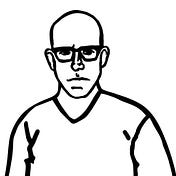No Mercy / No Malice
Friendship
A good friend is sick, and I’ve been thinking about him and friendship more broadly. Friendship is prevalent across hundreds of species — from chimps to elephants to flamingos. In other words, we are not an evolutionary anomaly. The cynical theory of friendship is that it’s a matter of reciprocity: Friendship is a transaction. Vampire bats regurgitate food and share it with unrelated bats — but only according to a carefully calibrated algorithm based on the other bat’s history of sharing its own food. Friends are more than this. Loneliness registers an impact on your well-being similar to that of smoking 15 cigarettes a day and rivals alcohol and smoking as a cause of early death.
Under Fire
In the United States friendship is on the decline. Since 1990, the percentage of Americans who report having less than three close friends has doubled, from 16% to 32%. The share who report having no close friends at all has gone from 3% to 12%. Put another way, 20 million Americans have begun smoking a pack a day. A number of factors inspired this perfect storm of loneliness: Covid; political polarization; fewer random encounters, as we no longer go to the mall/theater/office; social media raising a generation of disconnected people who feel worse about themselves; and a lack of Third Spaces.
Men and women approach friendship differently. Men have it drilled into us from an early age that vulnerability and emotional connections are signs of weakness. They aren’t, and men with influence have an obligation to cleanse this bullshit version of masculinity from the zeitgeist. But to be clear: Declining friendships is an everyone problem.
The decline in friendship is insidious, as it feeds on itself. Friendship is a muscle that strengthens with use but atrophies with age. We have so many more opportunities and so much more fuel for our friendships when we are children and even as young adults.
Necessary
They say you are the sum of your friends. Here is, roughly, the sum of me during my formative years:
In the fourth grade I was new to Fairburn Elementary. On my first day a kid named Adam threw a Frisbee he wasn’t supposed to have, it flew away from him, and he climbed a fence he wasn’t supposed to climb. On the trip back with the Wham-O disc of joy, he fell off the fence and lay writhing on the ground until the field monitor came over and tried to help. Adam bit him. Our teacher, observing that I was shy and well-behaved, strategically sat me next to Adam, thinking I’d be a balm. Osmosis occurred, but in the wrong direction. In no time, we were breaking into the school on weekends, throwing water balloons at cars from his roof, and leaving brown bags of dog shit on doorsteps after setting them ablaze. Good times.
Despite the biting, there was an innate kindness to Adam. He was cooler and more popular than me but always included me, despite the hit to his brand. Our freshman year in college, he at Berkeley, me at UCLA, I went north for a visit. I called him from LAX to let him know when I was landing. Before hanging up he said, “I can’t wait to see you.” This may seem trivial, but 18-year-old boys in 1982 didn’t speak to each other that way. Forty years later, Adam is still that peanut-butter-and-chocolate of cool and kind. I see it most hearing him talk about his mother, who’s suffering from late-stage dementia. Unlike Adam, I am not an innately kind person. But it would be impossible to be around such an impressive person and not want to model and adopt this feature. I’m a better man because of a boy who used to bite field monitors.
Emerson, where I met Adam, was an L.A. public school that bused kids in from the inner city. Adam was there about two months before his parents (like most white parents who had money) moved him to Windward, a bougie private school that went scuba-diving off Catalina for marine biology class. Emerson did not offer marine biology, though we did do a field trip to the La Brea Tar Pits.
As Adam had abandoned me, I became friends with a Mormon kid named Brett. I love Mormons and find their depiction in the media to be a cartoon of everything that is bad about the Latter-day Saints (there is a lot). I played on the church’s softball and basketball teams and had dinner with Brett’s family on Monday nights, the evening reserved for family. Every day — I mean every day — the family would include me, as I was Brett’s friend and they couldn’t help but notice I was being raised by my working mother who wasn’t around a lot.
Brett was a good athlete and a great student. He decided in his junior year he wanted to go to Stanford. He was smarter and more disciplined than me, but not that much smarter or more disciplined. Brett gave me aspiration — specifically, he helped me envision a path to UCLA. Fun fact: When I applied, the acceptance rate was 76% (it’s now 11%). I was rejected the first time I applied.
Brett also showed me the strength one gets from faith and family and ambition. Not a bad thing for me, given that I had a working mother and there was no adult male in our household, to be sequestered from drugs and alcohol. There were downsides. I didn’t lose my virginity until 19 … but that’s another post.
In high school, I became good friends with Richard, a popular Black kid who was middle linebacker for our football team. We hung out a lot. He liked me, as I could make him laugh (hysterically). I was fascinated by Richard. He had such an ease to him. He also was that rare combo of cool and kind. He was having sex with what seemed like a dozen girls, and he would tell me about it. It just blew my mind that guys my age were actually getting to do that (with other people, no less). He injured his neck in the first quarter of the big game, and had to sit out the rest of the game. I offered him a ride home. As we were walking to my Renault Le Car (i.e., lawnmower with doors) he began making choking noises. But he wasn’t choking, he was crying. “This was gonna be my night, the scouts were here, and … there’s no way I’m going to college now.” I had never seen someone so big, so strong, sob like that. I wish I’d had the presence to comfort him. Instead I just stood there watching a 6-foot-3, 210-pound 17-year-old bent over with his hands on his knees, hiding behind my car so others wouldn’t see him. Despite his fears, Richard earned a scholarship to a good school.
My other good friend was David. He was so handsome, when girls walked by him they’d whisper to each other. But he was painfully shy and had a difficult time maintaining eye contact. One day out of the blue, he asked me if I wanted to play tennis. Twice a week our senior year we went to Westwood Park and played on the public courts. We’d flip a quarter, and whoever lost had to pay the 25 cents for the lights. David was uncomfortable in his own skin, but he was the first person I ever became comfortable being silent around. When we did talk, we’d talk about girls, nonstop, and who we’d want to date. That is, if the natural order of the universe was turned upside-down and we got a date.
We had a real connection, as our home lives were nearly identical — our fathers out of the picture, both being raised by our mothers, who were both secretaries. Even the condos we lived in were similar. The story doesn’t end well. David went to the University of Oregon and, from what I know, got his heart broken his freshman year. He went to a very public area of the campus at night with a shotgun, put it in his mouth, and pulled the trigger. I always thought/knew I should reach out to his mom to tell her how much I liked him. I never did. I told my mom what had happened, and every day for the next two months, on her way to work, she stopped by my fraternity at UCLA and woke me up at 7:30 to ask how I was doing. It was incredibly embarrassing, humiliating even. (I begged her to stop.) It’s impossible to understand how much your parents love you until you have kids.
Fast Forward
I’m on a plane to Dubai, where I will meet seven friends (some mentioned above) to drink, laugh, and engage in arrested adolescence. We’ll then head to Doha for the semi-finals. I’m rooting for Morocco and England. But I digress. While I’m gone, Brett’s daughter will take a break from her freshman year at Boston College and stay at my place in Soho. Where does the time go?
As I’ve aged, I’ve become more settled … yet more anxious. I see threats to the people I love, to me, and to the world, everywhere. I am more economically secure than I ever imagined I would be, yet I worry about money all the time. I am more fit than I’ve ever been but feel the gravity of biology and the darkness of the end getting heavier and closer every day. I feel fortunate to have people who love me, but truly blessed to have people who let me love them … immensely. But that love is also an enormous source of stress. Is he adjusting to school? He seemed off today — did he seem off to you? Etc.
This week I am in a safe place. A place where I can say stupid things without fear of shaming. Show affection to other men without feeling awkward and boast about my blessings without feeling self-conscious. All of this is possible, when you’re among friends.
Life is so rich,




